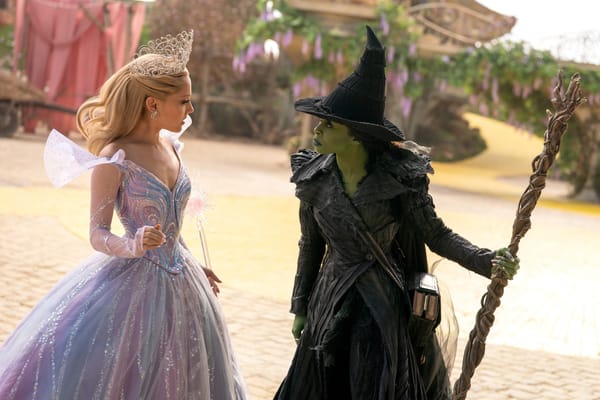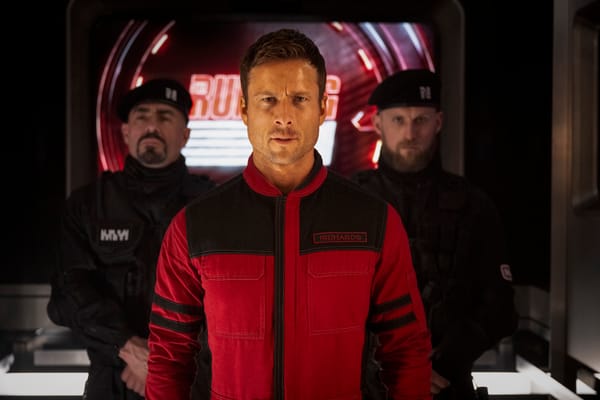TIFF 2025 Dispatch #2: Rian Johnson and Steven Soderbergh Pull Off Resurrections; Frankenstein Should Have Stayed Buried
Stephen David Miller wraps up the Toronto Film Festival, with thoughts on Wake Up Dead Man: A Knives Out Mystery, The Christophers, Frankenstein, Rental Family, and Blue Heron.

The 50th edition of the Toronto International Film Festival is officially complete, and with it my transition back to reality. Re-entry is always a somewhat bumpy ride. Attending a festival like TIFF requires an odd sort of tunnel vision, one where the line between “joy” and “obligation” almost entirely recedes. Early morning alarms scream at you to move to another dark room and sit. You race across town, breathless, to catch a meditation on contentment. You find yourself cycling through a kaleidoscope of comedies and tragedies, frivolous distractions and poignant calls to action, with no opportunity to pause and cleanse your palate. For one blurry week, you repeat this process: open your heart, give the Bingo cage a spin, take note of what it gives you, then reset it. In the outside world, all of that dissolves into water cooler conversation. “Catch anything good?” It’s the only thing someone could reasonably ask, but at the same time it feels insufficient. Like finishing a marathon just to field questions about the asphalt.
Let’s talk concrete details. Over the past week I was able to catch 32 screenings, including most of the major award-winning titles. This year, the top prize (and frequent Oscar bellwether) went to Chloé Zhao’s Hamnet—a deserving winner, which I raved about in my previous dispatch. Runner-up awards were given to Guillermo del Toro’s Frankenstein and Rian Johnson’s Wake Up Dead Man, both of which I’ll be covering in this update. And although I appear to be the only person on earth who didn’t adore the International People’s Choice Award winner, Park Chan-wook’s No Other Choice, I’m willing to chalk that up to exhaustion and give it another go this fall. At any rate, I was thrilled to see my favorite film out of Cannes, Sentimental Value, take home the second place prize for International. You won’t catch me betting on an Anora-style awards sweep any time soon, but I hope this cements its place in the conversation.
In fact, this might be the first time in my history of attending TIFF that I’m left with no clue about the Best Picture race. That isn’t for any lack of worthy contenders; it’s a matter of abundance. In addition to the many great premieres I caught this week, there are a surprising number of films that opted only for Venice or Telluride, or which skipped the festival circuit entirely. However it shakes out, it’s looking to be an unpredictable awards season! But instead of prognosticating, let’s take a final look back with reviews of five more notable premieres.
Wake Up Dead Man: A Knives Out Mystery (Rian Johnson)
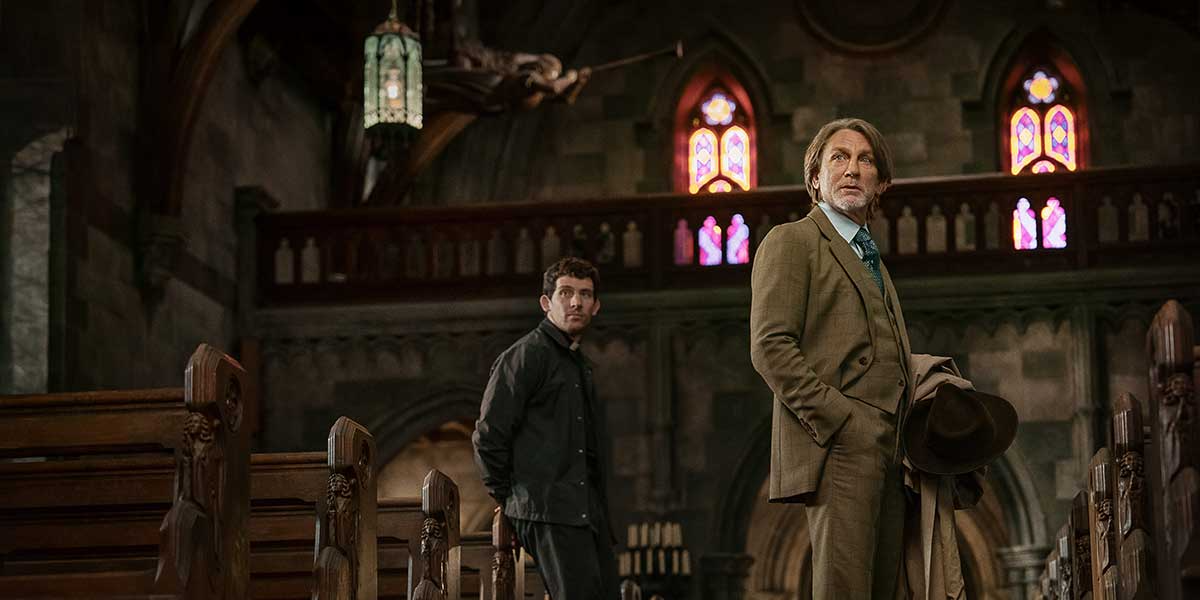
2019 was my first year at Toronto, and nothing got me hooked on the experience quite like seeing Knives Out in the jam-packed Princess of Wales Theater. At Q&A’s, the director will often say something like “TIFF has the greatest audience in the world.” It sounds pandering, but I know exactly what they mean. There’s an electricity to a sold-out public screening, the unstuffy exuberance of a crowd of die-hard movie fans who would rather love something than pick it apart. Rian Johnson’s twisty whodunnit didn’t add up to more than a collection of thrills for me, but the energy of the room transformed my “liked it” into “loved it.”
Wake Up Dead Man not only recaptures the giddiness I felt in that first screening; it exceeds it in every dimension. As a thrill ride, it combines everything that wowed me in the previous two installments and, if anything, doubles down. The mystery is tighter, the scenery chewing more delicious, the toying with structure more athletic. Daniel Craig continues to relish every silly, Southern-fried syllable he utters, and his joy with the material is contagious. From Josh Brolin as a grizzled, degenerate priest to Glenn Close as his devoted acolyte, every player in this ensemble is visibly having a ball. As writer and director, Johnson treats his story like Penn and Teller treat a trick: telegraphing each move with a degree of humor and self-awareness that only makes it that much more surprising when it dazzles you. He’s not just toying with genre; he’s toying with our knowledge that he’s toying with genre, with a sincerity that still resists self-indulgence.
But what truly elevates this above the pack for me is the sandbox Johnson is playing in. See, the Catholic parish where this murder takes place functions as much more than a campy Gothic setting. Faith and doubt permeate every aspect of the film. As a former evangelical (and present cinephile) with a propensity for overthinking, I found its treatment of the subject both funny and surprisingly endearing. The highlight of the film is its central protagonist, with whom we spend nearly every scene: the “Young, dumb, and full of Christ” reverend played by a phenomenal Josh O’Connor. He sees the way the tide is turning in his church, relationally and politically. A growing sense of dread has cast their existence in terms of the hunter and the hunted; a zero-sum game that’s anathema to grace. It freezes him as a minister, unsure whether it’s possible to cure his flock with the same tools that are complicit in their sickness. And it freezes him as the star (or surrogate director) of a zany murder mystery, fixating on the who’s and why’s of one individual sin while societal decay marches on, unimpeded. What’s the use in litigating the source of the wound when the damage has already been inflicted? Better to turn our attention to the hope of a resurrection.
Frankenstein (Guillermo del Toro)
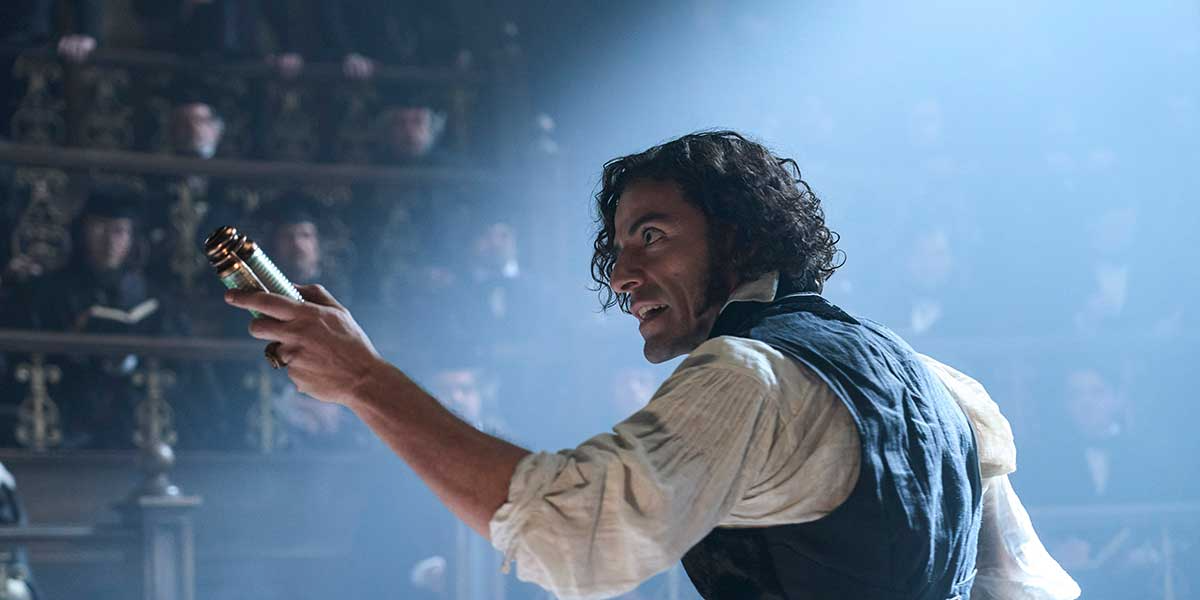
Sometimes, Lazarus is better left buried. The story of Frankenstein is woven through American culture, to the point where even pointing out the ways we’ve deviated from Mary Shelley’s original creation has become its own cliché. “The image in your head is just a Hollywood creation.” “Technically it’s Frankenstein’s monster.” “In a sense, it’s actually Victor who’s the villain.” How can you adapt a work so ingrained in the public consciousness, especially when much of what we’re conscious of sounds cheesy?
Guillermo del Toro opts to sidestep much of Universal history and focus on the source. There is no cackling hunchbacked assistant in his new take on Frankenstein, nor was any green face paint spilled in the making of the picture. Instead, large swaths of the 1818 classic are kept in place: a story-within-a-story structure bookended in the Arctic; a digression into Victor (Oscar Isaac)’s upbringing and relationship with his mother; philosophical ponderings about the nature of existence; a monster (Jacob Elordi) who speaks in paragraphs, not grunts. These elements are combined with odds and ends accumulated over a century of popular culture, and sewn together with del Toro’s signature fairytale aesthetic to create what I can at best call an interesting disaster. I’ll give this much to the mad scientist at the helm, he’s certainly making choices. No one else would make a (monster) mash-up quite like this: part gory CGI creature feature, part pathos-wringing soap opera, part arch drama with a supporting cast (Mia Goth, Christoph Waltz) playing caricatures of their brands. And they certainly wouldn’t have the clout to bring it to life on a massive budget, let alone to filter it through a lens of shifting perspectives which grinds the momentum to a halt. I didn’t have Frankenstein’s Rashomon-ster on my Bingo card!
But bold choices are no substitute for a coherent movie, and from the moment this began I knew I was in trouble. There’s a suspension of disbelief required to grapple with material this fantastical, a need to abandon all recognizable human behavior while still connecting to the morality play at the center. While that’s possible on the page, or (I imagine) with a more haunted, stripped-down version put to screen, it feels totally at odds with the Netflix digital sheen. I never felt transported into del Toro’s land of make believe. And despite Elordi’s admirably emotional performance, the only feeling it elicited from me was (unintended) laughter. What was meant to be a stirring parable about humanity registered, instead, as an extended sketch about a monster going to college, buying a trench coat, and getting super into Nietzsche. His isolation is tragic, and his yearning is earnestly portrayed. Unfortunately, I just couldn’t take it seriously.
Rental Family (Hikari)
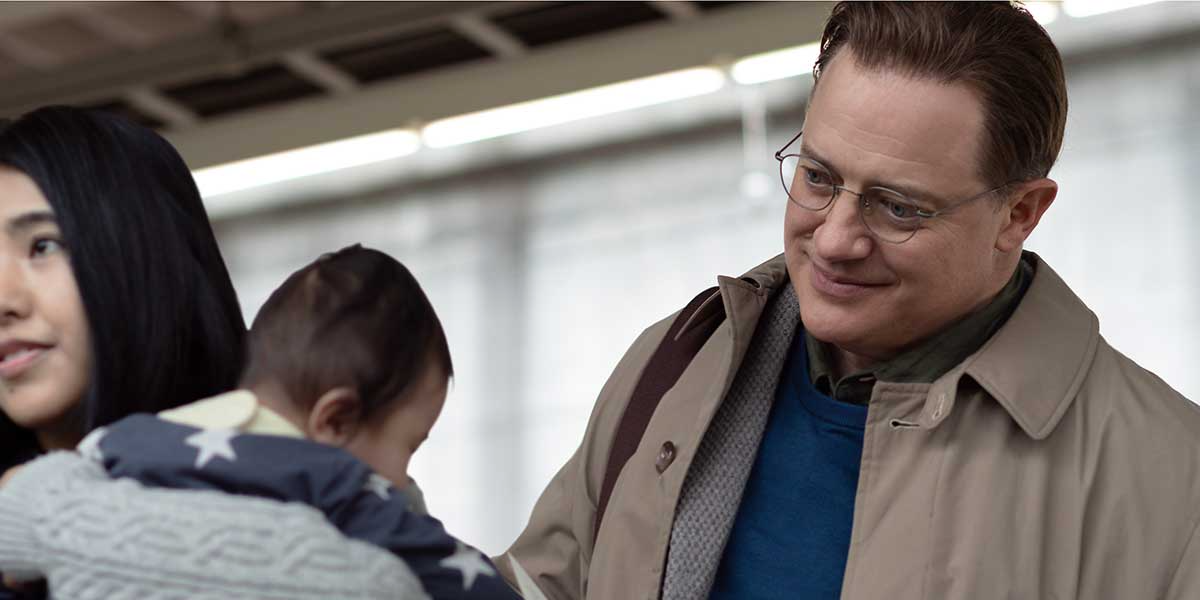
Isolation was a common theme in this year’s festival slate, and most of the non-monster variants struck a chord. Some present a desperate, manic alienation, like the congregation in Wake Up Dead Man or Riz Ahmed’s Hamlet. More often, though, they’re speaking to an aching discontent: the desire to be necessary, to mean something to someone. As a song I love puts it, we all have a deep-seated need “to be of some hard, simple, undeniable use.” Some, like the protagonist of the slight but charming Roofman, go to ridiculous lengths to recapture that feeling. Others, like the divorced father in the The Love That Remains, find themselves totally adrift.
Just about everyone we meet in Rental Family is desperate for connection. Absent the genuine artifact, they’ll settle for a convincing substitute. Hikari’s delicate drama follows an American actor (Brendan Fraser) living in Tokyo who’s struggling to land a decent role. He spends his days riding the train in silence, hopping from one failed audition to the other. At night he retreats to his one bedroom apartment, empty save the occasional visit from a sex worker. Despite the years he’s spent living in the city and his serviceable grasp of Japanese, he can’t shake his permanent status as an outsider. When he first stumbles upon the idea of a rental family agency, it all seems a bit unsettling: People want to pay him to pretend to be their [husband / father / friend]? Eventually, though he not only learns to accept it, but finds himself loving his newfound identities. If nothing else, they add variety to his life.
What’s beautiful about Hikari’s film is its total lack of judgment. Save one or two barely-there side characters, there are no real villains or butts of any “joke.” Her touch is light, but her love for her subjects is serious. There’s a wistful, knowing tone at the heart of her story, one that takes the loneliness of Lost In Translation and widens it to encompass other perspectives. Brendan Fraser is the centerpiece, of course, and his turn is as wonderful as you’d hope. Three years after winning an Oscar for his finely-tuned vulnerability in an otherwise crass, manipulative movie, it’s a joy to see him star in something worthy of his talents. But he’s not the only one given a chance to bear his soul. From surrogate and sex worker to the lonely souls who pay for their companionship, Rental Family grants each character interiority and, often, ample room to breathe. That generosity occasionally sacrifices the film’s narrative focus, but it’s a tradeoff I’m happy to accept. This sort of goodnatured storytelling is rare, and worth celebrating.
Blue Heron (Sophy Romvari)
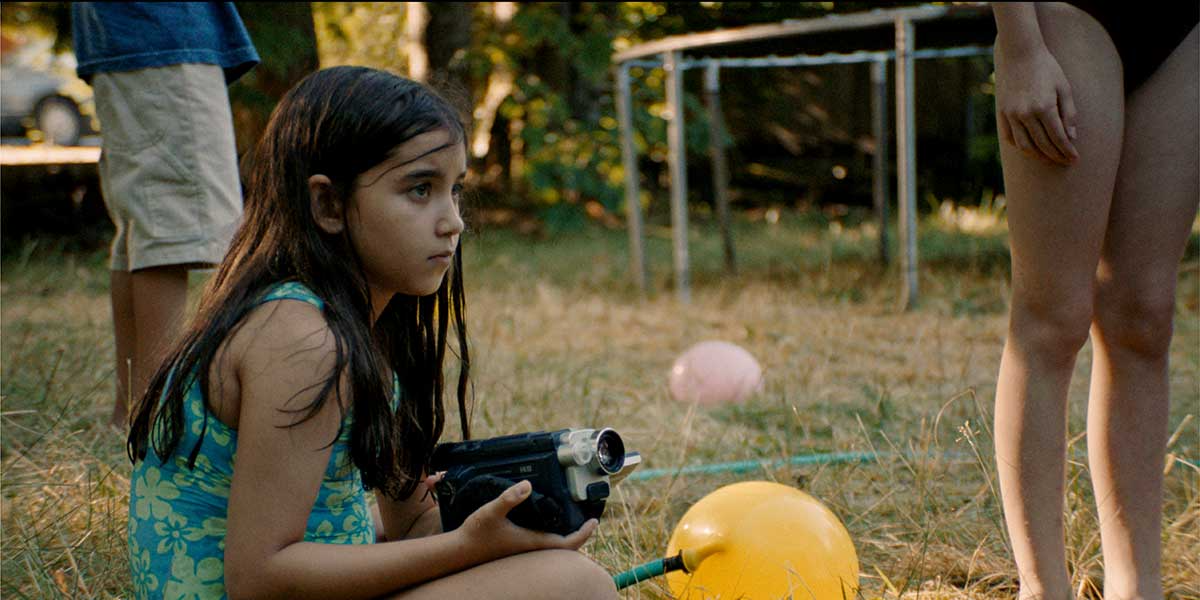
Every festival features a handful of films about childhood, and one of them usually lands among my favorites. This year, though, there’s something oddly specific in the Zeitgeist: a desire to protect children, paired with horror at the thought that you can’t. Whether due to coincidence or some collective, generational anxiety, multiple titles dealt with kids in crisis and adults who feel powerless to change them. In If I Had Legs I’d Kick You, Rose Byrne gives a tour-de-force performance as a stressed-out mother who’s rapidly losing her grip on reality. Bad Apples sees Saoirse Ronan in a dark comic turn as a teacher whose patience for rowdy students student has finally hit a breaking point. Steve gives the subject the social realist treatment, following a day in the life of a headmaster (Cillian Murphy) at a school for troubled boys—a powerful drama which, in any other year, would be the standout. But one film about that helplessness blew me away with both the emotions it channels and the sophistication with which it unpacks them. I’m still grappling with Blue Heron, days after my screening.
Sophy Romvari’s debut feature begins as a muted coming-of-age drama, dropping us into a story we don’t immediately understand. We watch as an ordinary day unfolds for a Canadian-Hungarian family of six. Three younger kids are loudly playing in the yard, while their teenage brother Jeremy (Edik Beddoes) smiles from a distance. The parents seem exhausted, though we aren’t entirely sure why. Nothing notable is happening, save this nagging feeling. But like Aftersun, something about the filmmaking makes it clear that we’re witnessing a memory; a puzzle being analyzed in post. We suspect the perspective might be that of the eight-year old Sasha (Eylul Guven), given our knowledge of the director and the way the camera settles on her face. Then again, the camera is also privy to things Sasha couldn’t have experienced, like the whispered arguments Mom and Dad engage in once the kids have gone to bed. So who exactly is puzzling, and over what? Over time, the eldest son’s behavior grows increasingly unsettling: his refusal to follow the simplest direction, his occasional distant stare, that time he wandered off at family beach day without a word. Minor acts of rebellion when taken point by point, but there’s a cumulative weight when we watch them in succession. Why is he like this? Why are his parents missing?
The story could have remained in that emotional space, and I’d have been left with a complete enough picture: an adult looking back at the subterranean tensions of her childhood, trying to communicate something a wrongness she’d been too young to put in words. But just when I felt I had a handle on Romvari’s project, the narrative took its first of many leaps. We see a director conducting research for her newest film. We watch social workers being interviewed on the subject of behavioral disorders, with an off-the-cuff naturalism that rings less as memoir than documentary, though the look and feel remains unchanged. More curveballs are thrown at us. Lines are blurred between fact and fiction, and identities shift with the fluidity of a dream. Though this shares some DNA with other autofictional works (especially Joanna Hogg’s brilliant The Souvenir Part II), the way it flows together strikes me as daring and entirely unique. I still haven’t fully wrapped my head around what Blue Heron is doing, but I’m reeling from the mark it leaves behind.
The Christophers (Steven Soderbergh)
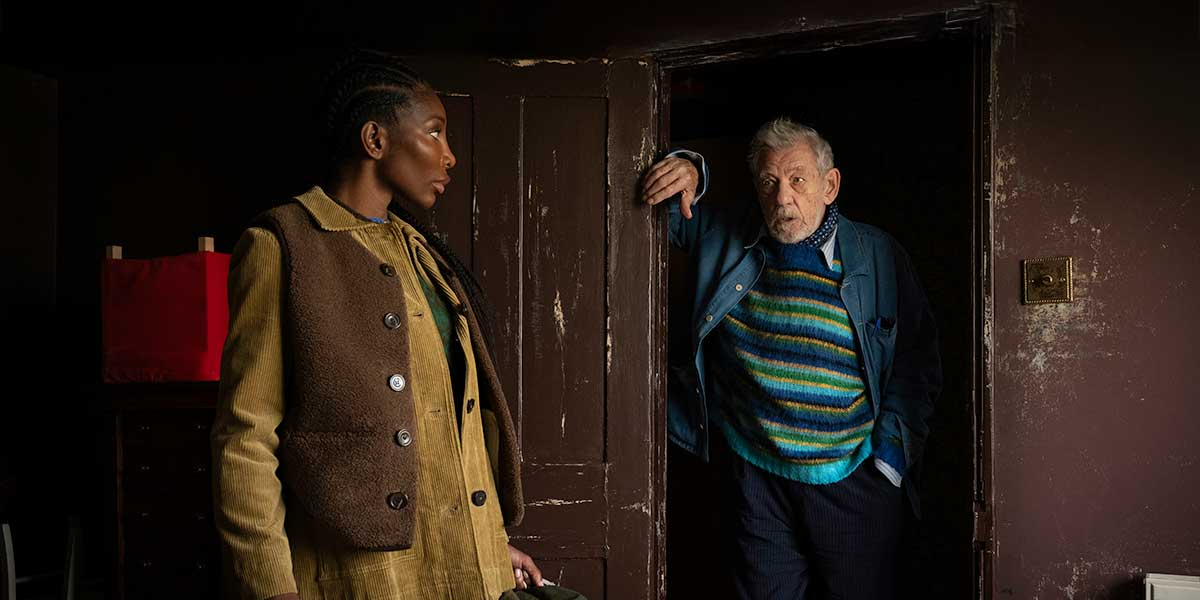
Can you ever really separate the art from the artist? It’s a question that can mean multiple things depending on your interpretation, and The Christophers is toying with them all. Morally: What do we do with art we once loved when their creators have lost our respect? Formally: Is style the sum of techniques that can be copied, or is it a wholly unique fingerprint? Creatively: Is it possible to make something beautiful without shedding a piece of yourself in the process?
Julian Sklar (Ian McKellan) was once a titan of the London art scene. For years, he was a tastemaker of international regard, whose oil paintings could easily net millions at auction. But eventually, his output ground to a halt. Whether that’s the fault of his public break with the industry, his semi-cancellation over a series of personal scandals, or a lack of inspiration, the result is the same: A bitter old man with contempt for his do-nothing children, selling Cameos to stave off financial ruin. And so, his do-nothing children have concocted a scheme involving a forger named Lori (Michaela Coel). Lori will interview for the role of Julian’s assistant, under the pretense of cataloging his collection. Her real target, though, will be nine works from Julian’s world-renowned “Christopher” period, which have sat stubbornly unfinished for decades. Steal the paintings, forge their completion, sell to the highest bidder. What could possibly go wrong?
Unlike a certain cantankerous painter, Soderbergh shows no signs of slowing down. Alongside Presence (messy but memorable) and Black Bag (great) released earlier this year, The Christophers makes him three for three in my book—in three wildly different genres, playing to wildly different strengths. This time around, he’s jettisoned both experimentation and slickness, in favor of a two-hander that lives and dies entirely by its language. Luckily, the stars at the center deliver: Coel is fantastic as a savvy, inscrutable forger with a trick up her sleeve, and McKellen dines out on every vulgar line he lobs at her. Ed Solomon keeps them fed with an impeccably tight script, whose plot doesn’t twist so much as freestyle around the subjects of art, authenticity, and imitation. Despite its simple trappings, the result is sneakily impressive. This is my favorite Soderbergh film in recent memory, and one of the most surprising highlights of the fest. If art and artist really are tied at the hip, 2025 marks a thrilling, three-legged race for the auteur. I can’t wait to see his next act of reinvention.
—
And that’s a wrap on this year’s coverage! When narrowing down what to highlight in these festival dispatches, I try to find a balance between praise and criticism, as well as between personal favorites and bigger, more newsworthy titles. That process always leads to casualties, particularly at a festival like TIFF which is so tilted towards big name, star-driven vehicles. Feel free to take a look at the full list of screenings I caught over the last week, and reach out if you’re curious about anything I didn’t cover. You can find me on Letterboxd, Bluesky, at The Spoiler Warning podcast, or in the comments section below.

